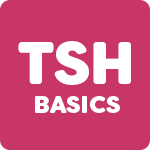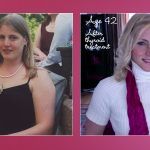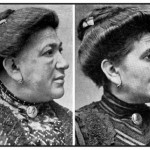At some point everyone has experienced Hypoglycemia, also known as low blood sugar. You may not know the term but you probably know the feeling. You wait too long to eat or eat high carb foods (say a bagel for breakfast), then within a few hours it feels like you hit a wall. You might feel these symptoms:
- Energy comes crashing down
- Weak and Shaky
- Irritable or Cranky
- Hot (like a hot flash) or sweaty
- Fuzzy head, trouble thinking clearly
- Become ravenously hungry
- Read more about Hypoglycemia symptoms
After eating a ridiculous amount of food, or having something really sugary your energy starts to recover slowly. It takes a while to rebound from the weak, lifeless state, and muster enough energy to get off the couch.
For over twenty years I experienced this kind of high-low energy cycle with Hypoglycemia. At one point, before getting treated for Hypothyroidism and Adrenal Fatigue, I asked a doctor about Hypoglycemia. He simply dismissed it and said: “No, nothing can be done about it. Just drink orange juice when it happens.” The problem was, I experienced Hypoglycemia about every two hours, that’s a lot of O.J.! I’m no doctor, but one would think having energy crashes every two hours means something else is not right.
Also worth noting, in the middle of a working-out I would often get Hypoglycemia. For me this meant with any kind of physical exertion I would get really week, start shaking and nearly collapse with exhaustion. This was totally frustrating because I wanted to exercise, and the doctors told me to “lose weight I just needed to exercise more.” But when the Hypoglycemia wall hit that was it, workout over. At that point orange juice just isn’t going to help. So the looming question was why was I getting Hypoglycemia and could it be prevented?
When I finally researched Hypothyroidism and Adrenal Fatigue, I was amazed to see Hypoglycemia as a symptom related to both conditions. How interesting! Finally an explanation that made sense, other than “No, nothing can be done about it…” With Hypothyroidism and Adrenal Fatigue, there are so many odd little symptoms it’s easy to pass them off as unrelated. But solving the root may solve the problem, as it did for me.
The solution turned out to be — you guessed it — getting on the right treatment for Hypothyroidism and Adrenal Fatigue along with diet changes. In particular, when I added the Hydrocortisone for Adrenal Fatigue, I noticed a big improvement with the Hypoglycemia. According to Wikipedia, Glucocorticoids like Hydrocortisone may help prevent or reverse Hypoglycemia.
When I learned that carbs and simple sugars are hard for people who have Hypothyroidism and Adrenal Fatigue, it all started to make sense. For years I would eat a bagel or cereal for breakfast which spikes the blood sugar, then two hours later my blood sugar would come crashing down causing Hypoglycemia (low blood sugar). Of course, as I later learned being carb sensitive, drinking a glass of orange juice was terrible for me (and started the whole high-low cycle all over.)
On the diet side, I removed simple carbs from my diet, replaced them with protein and fat, and started eating every two hours (rather than 3 meals a day, or worse, one meal a day!). It was pretty incredible to feel the difference in my energy and thinking.
These days I am much more stable, I rarely have Hypoglycemic crashes (even during exercise) and my weight stays in a healthy range. Before the Hypoglycemia hits, I am now able to recognized the early signs of hunger (just the slightest stomach pang) which prompts me to eat a snack (nuts or cheese, maybe with some apple). Before exercising I always eat this kind of snack and it works great to keep me going through the workout.
I know there is so much to learn, and it can all be overwhelming. Go easy on yourself and take it one bit of info at a time. When the energy is stable and you think clearly the rest gets so much easier!















